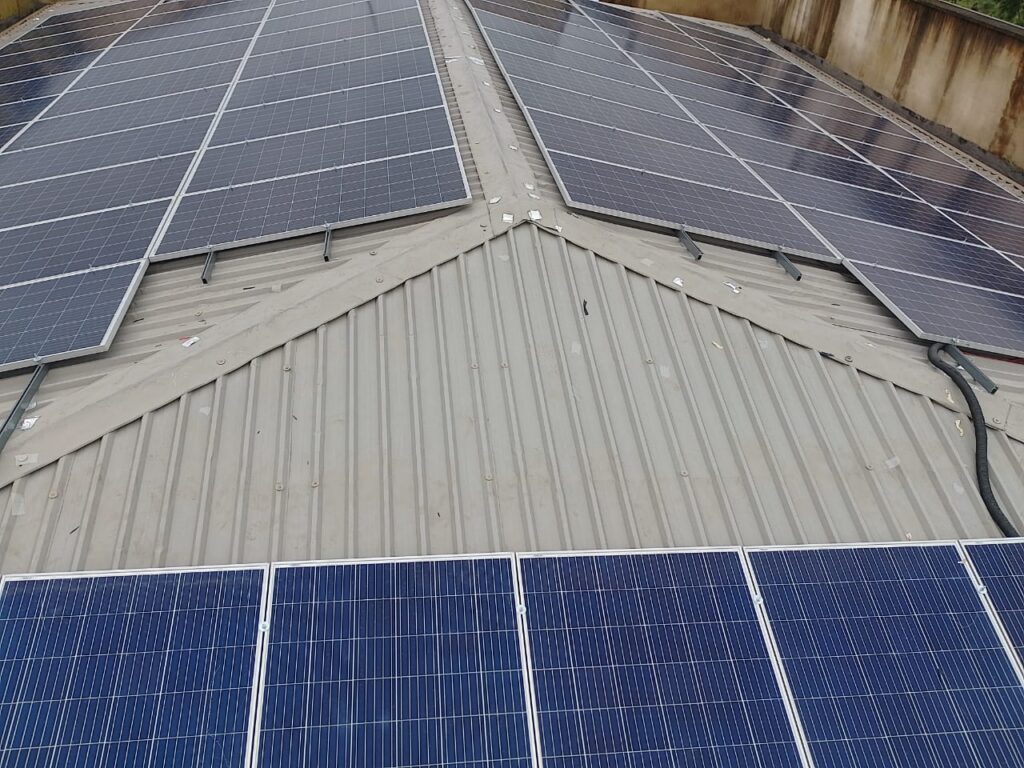Energizing Business and the Environment: The Advantages of Commercial Solar Solutions

INTRODUCTION
In an era where sustainability and cost-efficiency are paramount for businesses, commercial solar solutions are emerging as a beacon of hope. Not only do these systems offer numerous benefits to companies, but they also play a pivotal role in reducing the carbon footprint and preserving our environment. In this article, we’ll explore the advantages of commercial solar solutions for businesses and the environment, shedding light on why going solar is a smart choice for all.
Benefits to Businesses
Cost Savings: One of the most immediate and compelling advantages of commercial solar solutions is the potential for significant cost savings. By harnessing energy from the sun, businesses can reduce their reliance on traditional utility grids, resulting in lower electricity bills. These savings can have a substantial impact on a company’s bottom line, freeing up capital for other critical investments.
Energy Independence: Solar panels provide businesses with a reliable source of energy that is independent of fluctuations in energy prices or supply disruptions. This energy security can be particularly valuable for companies operating in regions with unstable energy grids or during times of peak demand.
Tax Incentives and Rebates: Governments worldwide offer various incentives, tax credits, and rebates to encourage the adoption of solar energy. These incentives can significantly offset the initial investment in solar systems, making them even more financially attractive for businesses.
Enhanced Corporate Image: Going green and reducing carbon emissions are not just buzzwords anymore; they’re integral to a positive corporate image. Companies that embrace solar solutions demonstrate a commitment to sustainability, which can attract environmentally conscious customers, partners, and investors.
Long-Term Investment: Solar panels are known for their durability and longevity, often with warranties spanning 20 to 25 years. This long-term investment provides businesses with reliable energy generation and peace of mind.
ADVANTAGES TO THE ENVIRONMENT
Reduced Carbon Emissions: The shift to solar energy significantly reduces a business’s carbon footprint. Solar panels generate electricity without emitting greenhouse gases or other harmful pollutants, helping combat climate change and air pollution.
Conservation of Resources: Solar power reduces the demand for fossil fuels, preserving valuable natural resources. The extraction and consumption of fossil fuels contribute to habitat destruction and water pollution, which can harm ecosystems.
Improved Air and Water Quality: By reducing the use of fossil fuels, solar energy contributes to better air quality and reduces the release of harmful pollutants into the atmosphere. This, in turn, benefits human health and ecosystems.
Sustainable Energy Generation: Solar power is a renewable and sustainable energy source. Unlike fossil fuels, the sun’s energy is practically inexhaustible, ensuring a long-term energy solution for businesses and the planet.
Mitigation of Urban Heat Islands: Solar panels can help mitigate the urban heat island effect in cities by reducing heat absorption from rooftops. This contributes to more comfortable urban environments and less strain on energy-intensive cooling systems.
CONCLUSION
Commercial solar solutions offer a win-win scenario for businesses and the environment. The financial advantages, including cost savings and tax incentives, make solar energy an attractive investment for companies of all sizes. Simultaneously, the environmental benefits of reduced carbon emissions, resource conservation, and improved air and water quality underscore the importance of transitioning to clean energy sources.
As businesses increasingly recognize the advantages of solar energy, the global shift toward sustainability gains momentum. By embracing commercial solar solutions, companies can not only secure their energy future but also play a pivotal role in safeguarding the environment for generations to come. It’s a powerful combination that offers hope for a cleaner, greener, and more sustainable future.
